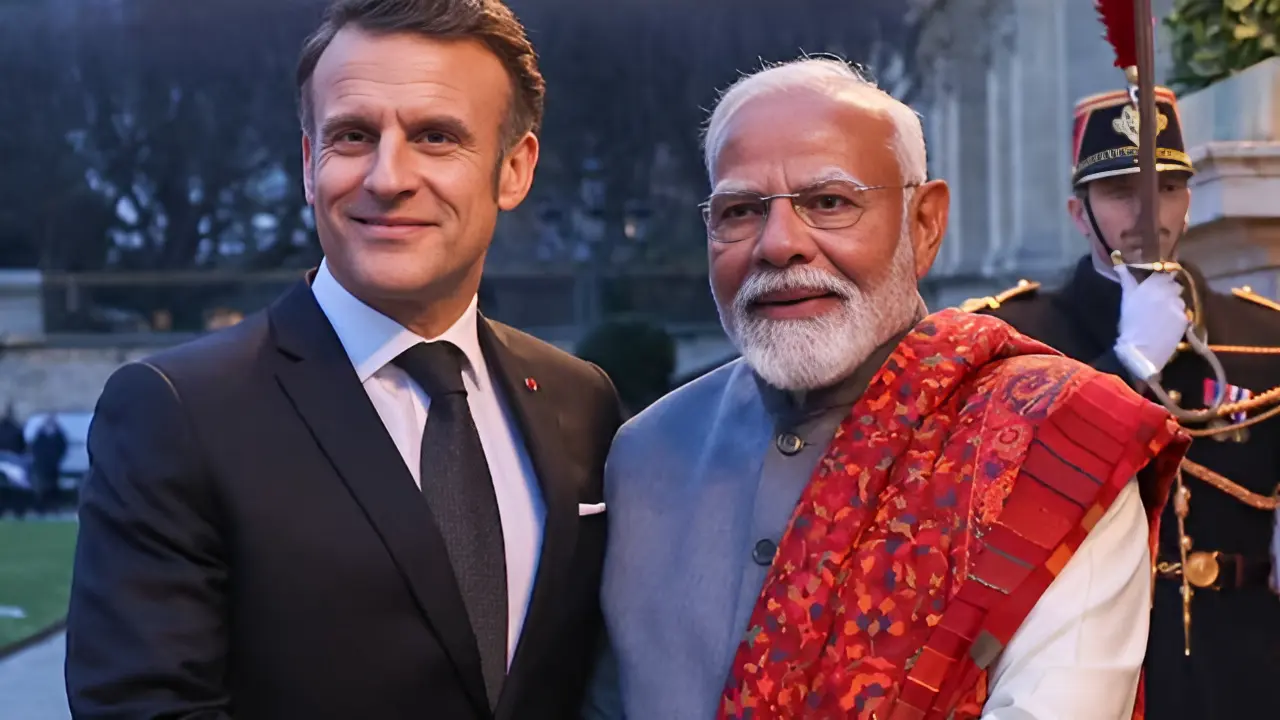
France has reaffirmed its support for India's permanent membership at the United Nations Security Council (UNSC) while deepening defense collaboration
France’s Endorsement of India’s UNSC Bid
India-France Partnership- India’s long-standing aspiration for a permanent seat at the United Nations Security Council (UNSC) has received a major boost with France reaffirming its support. French President Emmanuel Macron emphasized the need for UNSC reforms, advocating for India, Germany, Japan, and Brazil to be included as permanent members. Macron’s statement aligns with growing global calls for a more representative Security Council, reflecting the geopolitical realities of the 21st century.
India has consistently pushed for UNSC reforms, arguing that the current structure does not adequately represent emerging global powers. With backing from France, the UK, and the US, India’s bid gains credibility, though opposition from China remains a hurdle.
Table of Contents
Why India Deserves a Permanent Seat
- Largest Democracy: India represents 1.4 billion people, making it a crucial voice in global governance.
- Economic Powerhouse: India is the world’s fifth-largest economy, influencing global trade and security.
- Peacekeeping Contributions: India has been a major contributor to UN peacekeeping missions.
- Strategic Indo-Pacific Role: India plays a key role in regional security, countering threats in the Indo-Pacific.
France’s endorsement strengthens India’s case, but global consensus remains a challenge. The next steps involve diplomatic negotiations and mobilizing support from other nations.
India-France Defense Partnership: Safran’s Role in Tejas Mark 2
Parallel to diplomatic advancements, India is actively exploring a partnership with French aerospace giant Safran to develop advanced jet engines for the Tejas Mark 2 fighter jets and the upcoming AMCA stealth aircraft. This move comes after delays in engine deliveries from the US, prompting India to seek alternatives.
Why Safran?
Safran has proposed a 110 kN thrust engine for Tejas Mk-2 and a 120 kN engine for AMCA. These engines promise enhanced speed, endurance, and payload capacity, making India’s indigenous fighter jets more competitive on the global stage. The collaboration could also include technology transfer, boosting India’s self-reliance in defense manufacturing.
Strategic Implications
- Reduced Dependence on the US: India’s shift towards France for critical defense technology signals a diversification of its military partnerships.
- Boost to Indigenous Manufacturing: A successful deal with Safran could accelerate India’s efforts to develop homegrown jet engines, reducing reliance on foreign suppliers.
- Strengthened Bilateral Ties: Defense cooperation further cements India-France relations, complementing their existing collaborations in Rafale fighter jets, submarines, and space technology.
Geopolitical Impact
India’s growing defense and diplomatic ties with France reflect a broader realignment in global power structures. As India strengthens its military capabilities, it positions itself as a key player in Indo-Pacific security, countering regional threats and enhancing strategic autonomy.
France’s endorsement of India’s UNSC bid also challenges China’s dominance in global governance, reinforcing India’s role as a leading voice for developing nations.
Conclusion:
India & France, A Strategic Partnership for a New Era
India’s growing alliance with France marks a pivotal shift in global diplomacy and defense strategy. With France’s unwavering support for India’s UNSC bid and advanced defense collaborations, this partnership is not just symbolic, it’s a testament to India’s rising global stature.
The proposed Tejas Mark 2 fighter jet engine deal with Safran further strengthens India’s indigenous defense capabilities, reducing dependency on foreign technology while boosting self-reliance under “Make in India.” This collaboration holds the potential to redefine India’s aerial combat strength, making its fighter jets more competitive and technologically advanced.
Beyond defense, France’s backing of India at the UNSC adds diplomatic weight to India’s bid for greater global governance influence. As the world sees shifts in geopolitical alliances, India’s strategic partnerships especially with nations like France, will be crucial in reshaping the balance of power and ensuring a multi-polar world order.
India-France Defense Partnership Looking Ahead
This alliance cements France as one of India’s most trusted strategic partners, offering new opportunities in defense, technology, and diplomatic cooperation. With India eyeing a permanent seat at the UNSC and boosting its fighter jet program, the country is set to play a stronger role in international affairs.
The question now is: how will other global powers respond to this deepening India-France partnership? Will this accelerate India’s rise as a leading force in global governance and military strength? One thing is certain, India’s trajectory is unstoppable, and France is playing a key role in this ascent.
Also read – A Game-Changer India’s Kaveri Jet Engine Trials in Russia: A Breakthrough for Ghatak Stealth UCAV